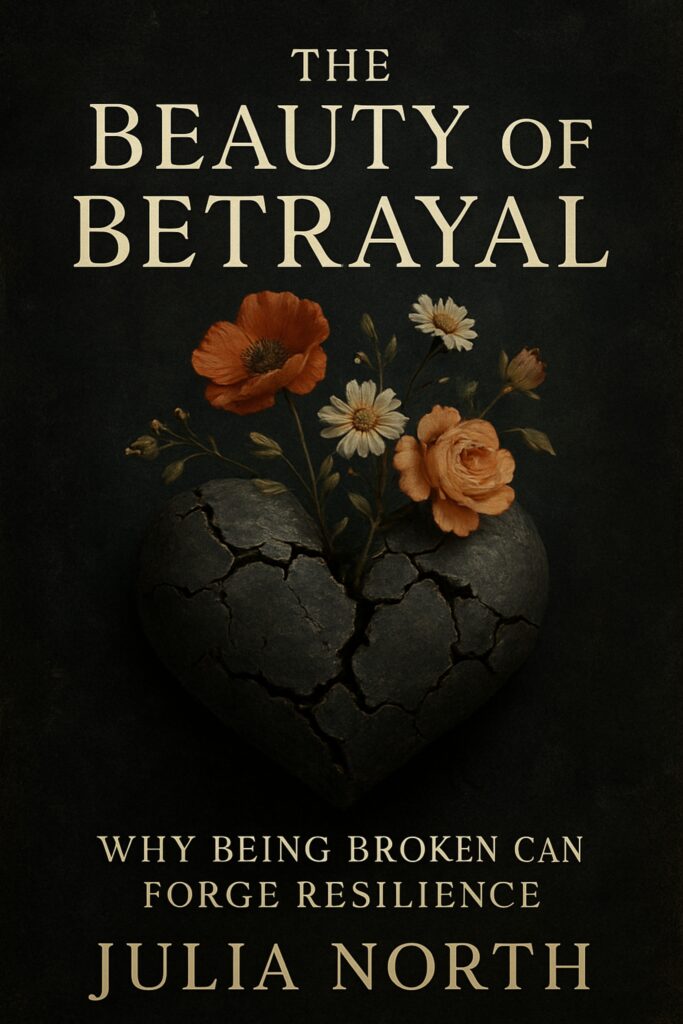Betrayal is not just a wound — it is an annihilation. It is the collapse of trust, the shattering of identity, the violent exposure of how fragile connection really is. When someone you trusted turns against you, they don’t just break a bond. They break the architecture of your reality.
And when that reality crumbles, rage and obsession rise like fire through the ruins. These are not weaknesses. They are natural consequences of the psychic implosion that betrayal creates. In the aftermath, the mind claws at what it lost, demanding answers, rehearsing scenes, replaying conversations like sacred scripts. The body burns with adrenaline, anger, humiliation, and desire for revenge.
Psychology may call these states “unhealthy.” Society may pathologize them as “overreacting.” But the occult truth is different: rage and obsession after betrayal are not disorders. They are initiation.
Rage as the Body’s Alarm System
Rage is not random. It is the nervous system’s siren. Betrayal threatens survival — not just physical, but emotional, social, and spiritual survival. Rage is the body’s way of saying: something sacred was violated, and I will not allow this to pass unnoticed.
This is why rage feels uncontrollable. It is not merely anger at the act — it is fury at the rupture of trust, fury at the mockery of intimacy, fury at the collapse of meaning. Rage rises because the body refuses to let the soul’s wound be ignored.
Obsession as Psychic Reconstruction
Obsession is the twin of rage. Where rage seeks to destroy, obsession seeks to reconstruct. Betrayal creates a void in narrative. The betrayed asks: Why? How could they? What was real? What was false? The mind cannot let go because it is trying to rebuild a map of reality that has been incinerated.
Replaying conversations, stalking timelines, dissecting details — these are not madness, but attempts to stitch coherence from chaos. Obsession is the psyche’s desperate ritual of repair. Only once the map is redrawn can the mind begin to release.
Why Society Fears These States
Rage and obsession are taboo because they are dangerous. They disrupt order. A raging, obsessed individual is unpredictable, uncontrollable, threatening to the social fabric. That is why society insists you “move on,” “forgive,” “be the bigger person.” These instructions are not for your healing — they are for the comfort of others.
But rushing betrayal’s aftermath only drives rage underground, where it mutates into shame, depression, or numbness. The only way out is through.
Betrayal as Alchemical Fire
From an occult perspective, betrayal is one of the deepest initiations. It burns the illusions of trust, identity, and stability. Rage and obsession are the fires that strip away pretense. They consume the old self, the naïve self, the unguarded self.
What emerges is not weakness, but sovereignty. The one who has endured betrayal and survived rage and obsession does not return unchanged. They are forged in humiliation’s furnace. Their eyes see differently. Their soul trusts differently. Their presence carries an edge others instinctively recognize.
Rage as Sacred Energy
Rage, when acknowledged, can be transmuted into clarity. It becomes a boundary enforcer, a sword of discernment. Those who integrate rage no longer tolerate mistreatment. They radiate an authority that comes from having once been shattered and refusing to be shattered again.
Suppress rage, and it festers into bitterness. Integrate rage, and it becomes sacred fire.
Obsession as Depth Initiation
Obsession, too, has its gifts. It is the psyche’s insistence on depth. In obsession, you comb through details, uncover truths, perceive patterns you once ignored. This heightened perception can reveal not just the betrayal itself, but the blind spots, projections, and illusions that enabled it.
Obsession is painful, yes. But it is also revelation. It forces you to see what you once refused to see. And in that seeing lies liberation.
The Shadow of Rage and Obsession
Like all raw forces, rage and obsession carry shadows. Left unchecked, rage can destroy indiscriminately. Obsession can collapse into fixation that consumes your life-force. But the shadow is not inevitable. What matters is how these states are navigated.
Handled consciously, rage becomes fuel for transformation, and obsession becomes a teacher of discernment. Denied or indulged unconsciously, they devour.
Why They Are Natural
Rage and obsession are natural after betrayal because they are proportional responses to existential violation. When someone dismantles your trust, the psyche cannot shrug and say “it happens.” It must reckon with the abyss. Rage and obsession are the psyche’s way of saying: this mattered, this was sacred, and its destruction cannot be ignored.
To deny rage and obsession is to deny the sanctity of what was lost.
Integration: Walking Out of the Fire
Integration does not mean extinguishing rage and obsession overnight. It means allowing them their full expression in safe containers — through ritual, writing, movement, therapy, art, or magick. It means listening to their messages without letting them rule.
When integrated, rage becomes strength, obsession becomes wisdom, and betrayal becomes transformation. You emerge not weaker but stronger, carrying scars that are also sigils — reminders of what you survived, what you saw, and what you will never again allow.
The Beauty Within the Ruin

Rage and obsession after betrayal are not failures of psychology. They are the natural alchemy of the soul confronting annihilation. They are painful, terrifying, destabilising — and yet, if endured, they strip you bare until sovereignty shines through.
This is why The Beauty of Betrayal speaks not of despair but of initiation. Betrayal is destruction, but also revelation. Rage and obsession are its fire — the crucible that burns away illusions until what remains is indestructible.

